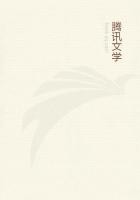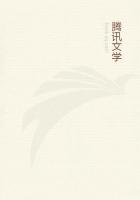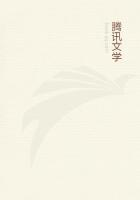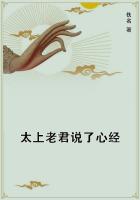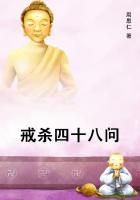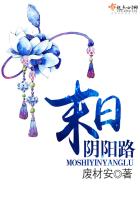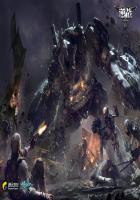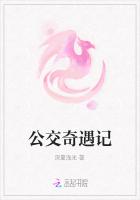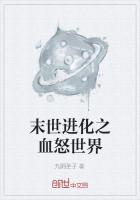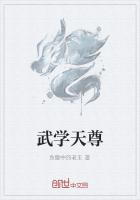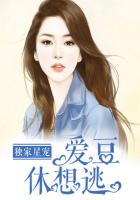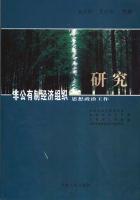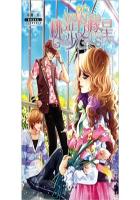Literary Lessons Fortune suddenly smiled upon Jo, and dropped a good luck penny in her path. Not a golden penny, exactly, but I doubt if half a million would have given more real happiness then did the little sum that came to her in this wise. Every few weeks she would shut herself up in her room, put on her scribbling suit, and `fall into a vortex', as she expressed it, writing away at her novel with all her heart and soul, for till that was finished she could find no peace. Her `scribbling suit' consisted of a black woolen pinafore on which she could wipe her pen at will, and a cap of the same material, adorned with a cheerful red bow, into which she bundled her hair when the decks were cleared for action. This cap was a beacon to the inquiring eyes of her family, who during these periods kept their distance, merely popping in their heads semi-occasionally to ask, with interest, "Does genius burn, Jo?" They did not always venture even to ask this question, but took an observation of the cap, and judged accordingly. If this expressive article of dress was drawn low upon the forehead, it was a sign that hard work was going on, in exciting moments it was pushed rakishly askew, and when despair seized the author it was plucked wholly off, and cast upon the floor, and cast upon the floor. At such times the intruder silently withdrew, and not until the red bow was seen gaily erect upon the gifted brow, did anyone dare address Jo. She did not think herself a genius by any means, but when the writing fit came on, she gave herself up to it with entire abandon, and led a blissful life, unconscious of want, care, or bad weather, while she sat safe and happy in an imaginary world, full of friends almost as real and dear to her as any in the flesh. Sleep forsook her eyes, meals stood untasted, day and night were all too short to enjoy the happiness which blessed her only at such times, and made these hours worth living, even if they bore no other fruit. The devine afflatus usually lasted a week or two, and then she emerged from her `vortex', hungry, sleepy, cross, or despondent. She was just recovering from one of these attacks when she was prevailed upon to escort Miss Crocker to a lecture, and in return for her virtue was rewarded with a new idea. It was a People's Course, the lecture on the Pyramids, and Jo rather wondered at the choice of such a subject for such an audience, but took it for granted that some great social evil would be remedied or some great want supplied by unfolding the glories of the Pharaohs to an audience whose thoughts were busy with the price of coal and flour, and whose lives were spent in trying to solve harder riddles than that of the Sphinx. They were early, and while Miss Crocker set the heel of her stocking, Jo amused herself by examining the faces of the people who occupied the seat with them. On her left were two matrons, with massive foreheads and bonnets to match, discussing Women's Rights and making tatting. Beyond sat a pair of humble lovers, artlessly holding each other by the hand, a somber spinster eating peppermints out of a paper bag, and an old gentleman taking his preparatory nap behind a yellow bandanna. On her right, her only neighbor was a studious looking lad absorbed in a newspaper. It was a pictorial sheet, and Jo examined the work of art nearest her, idly wondering what fortuitous concatenation of circumstances needed the melodramatic illustration of an Indian in full war costume, tumbling over a precipice with a wolf at his throat, while two infuriated young gentlemen, with unnaturally small feet and big eyes, were stabbing each other close by, and a disheveled female was flying away in the background with her mouth wide open. Pausing to turn a page, the lad saw her looking and, with boyish good nature offered half his paper, saying bluntly, "want to read it? That's a first-rate story." Jo accepted it with a smile, for she had never outgrown her liking for lads, and soon found herself involved in the usual labyrinth of love, mystery, and murder, for the story belonged to that class of light literature in which the passions have a holiday, and when the author's invention fails, a grand catastrophe clears the stage of one half the dramatis personae , leaving the other half to exult over their downfall. "Prime, isn't it?" asked the boy, as her eye went down the last paragraph of her portion. "I think you and I could do as well as that if we tried," returned Jo, amused at his admiration of the trash. "I should think I was a pretty lucky chap if I could. She makes a good living out of such stories, they say." And he pointed to the name of Mrs. S.L.A.N.G. Northbury, under the title of the tale. "Do you know her?" asked Jo, with sudden interest. "No, but I read all her pieces, and I know a fellow who works in the office where this paper is printed." "Do you say she makes a good living out of stories like this?" And Jo looked more respectfully at the agitated group and thickly sprinkled exclamation points that adorned the page. "Guess she does! She knows just what folks like, and gets paid well for writing it." Here the lecture began, but Jo heard very little of it, for while Professor Sands was prosing away about Belzoni, Cheops, scarabei, and hieroglyphics, she was covertly taking down the address of the paper, and boldly resolving to try for the hundred-dollar prize offered in its columns for a sensational story. By the time the lecture ended and the audience awoke, she had built up a splendid fortune for herself (not the first founded on paper), and was already deep in the concoction of her story, being unable to decide whether the duel should come before the elopement or after the murder. she said nothing of her plan at home, but fell to work next day, much to the disquiet of her mother, who always looked a little anxious when `genius took to burning'. Jo had never tried this style before, contenting herself with very mild romances for THE SPREAD EAGLE . Her experience and miscellaneous reading were of service now, for they gave her some idea of dramatic effect, and supplied plot, language, and costumes. Her story was as full of desperation and despair as her limited acquaintance with those uncomfortable emotions enabled her to make it, and having located it in Lisbon, she wound up with an earthquake, as a striking and appropriate denouement. The manuscript was privately dispatched, accompanied by a note, modestly saying that if the tale didn't get the prize, which the writer hardly dared expect, she would be very glad to receive any sum it might be considered worth. Six weeks is a long time to wait, and a still longer time for a girl to keep a secret, but Jo did both, and was just beginning to give up all hope of ever seeing her manuscript again, when a letter arrived which almost took her breath away, for on opening it, a check for a hundred dollars fell into her lap. For a minute she stared at it as if it had been a snake, then she read her letter and began to cry. If the amiable gentleman who wrote that kindly note could have known what intense happiness he was giving a fellow creature, I think he would devote his leisure hours, if he has any, to that amusement, for Jo valued the letter more than the money, because it was encouraging, and after years of effort it was so pleasant to find that she had learned to do something, though it was only to write a sensation story. A prouder young woman was seldom seen than she, when, having composed herself, she electrified the family by appearing before them with the letter in one hand, the check in the other, announcing that she had won the prize. Of course there was a great jubilee, and when the story came everyone read and praised it, though after her father had told her that the language was good, the romance fresh and hearty, and the tragedy quite thrilling, he shook his head, and said in his unworldly way... "You can do better than this, Jo. Aim at the highest, and never mind the money." " I think the money is the best part of it. What will you do with such a fortune?" asked Amy, regarding the magic slip of paper with a reverential eye. "Send Beth and Mother to the seaside for a month or two," answered Jo promptly. To the seaside they went, after much discussion, and though Beth didn't come home as plump and rosy as could be desired, she was much better, while Mrs. March declared she felt ten years younger. So Jo was satisfied with the investment of her prize money, and fell to work with a cheery spirit, bent on earning more of those delightful checks. She did earn several that year, and began to feel herself a power in the house, for by the magic of a pen, her `rubbish' turned into comforts for them all. The Duke's Daughter paid the butcher's bill, A Phantom Hand put down a new carpet, and the Curse of the Coventrys proved the blessing of the Marches in the way of groceries and gowns. Wealth is certainly a most desirable thing, but poverty has its sunny side, and one of the sweet uses of adversity is the genuine satisfaction which comes from hearty work of head or hand, and to the inspiration of necessity, we owe half the wise, beautiful, and useful blessings of the world. Jo enjoyed a taste of this satisfaction, and ceased to envy richer girls, taking great comfort in the knowledge that she could supply her own wants, and need ask no one for a penny. Little notice was taken of her stories, but they found a market, and encouraged by this fact, she resolved to make a bold stroke for fame and fortune. Having copied her novel for the fourth time, read it to all her confidential friends, and submitted it with fear and trembling to three publishers, she at last disposed of it, on condition that she would cut it down one third, and omit all the parts which she particularly admired. "Now I must either bundle it back in to my tin kitchen to mold, pay for printing it myself, or chop it up to suit purchasers and get what I can for it. Fame is a very good thing to have in the house, but cash is more convenient, so I wish to take the sense of the meeting on this important subject," said Jo, calling a family council. "Don't spoil your book, my girl, for there is more in it than you know, and the idea is well worked out. Let it wait and ripen," was her father's advice, and he practiced what he preached, having waited patiently thirty years for fruit of his own to ripen, and being in no haste to gather it even now when it was sweet and mellow. "It seems to me that Jo will profit more by taking the trial than by waiting," said Mrs. March. "Criticism is the best test of such work, for it will show her both unsuspected merits and faults, and help her to do better next time. We are too partial, but the praise and blame of outsiders will prove useful, even if she gets but little money." "Yes," said Jo, knitting her brows, "that's just it. I've been fussing over the thing so long, I really don't know whether it's good, bad, or indifferent. It will be a great help to have cool, impartial persons take a look at it, and tell me what they think of it." "I wouldn't leave a word out of it. You'll spoil it if you do, for the interest of the story is more in the minds than in the actions of the people, and it will be all a muddle if you don't explain as you go on," said Meg, who firmly believed that this book was the most remarkable novel ever written. "But Mr. Allen says, `Leave out the explanations, make it brief and dramatic, and let the characters tell the story'," interrupted Jo, turning to the publisher's note. "Do as he tells you. He knows what will sale, and we don't. Make a good, popular book, and get as much money as you can. By-and-by, when you've got a name, you can afford to digress, and have philosophical and metaphysical people in your novels," said Amy, who took a strictly practical view of the subject. "Well," said Jo, laughing, "if my people are `philosophical and metaphysical', it isn't my fault, for I know nothing about such things, except what I hear father say;, sometimes. If I've got some of his wise ideas jumbled up with my romance, so much the better for me. Now, Beth, what do you say?" "I should so like to see it printed soon ," was all Beth said, and smiled in saying it. But there was an unconscious emphasis on the last word, and a wistful look in the eyes that never lost their childlike candor, which chilled Jo's heart for a minute with a forboding fear, and decided her to make her little venture `soon'. So, with Spartan firmness, the young authoress laid her first-born on her table, and chopped it up as ruthlessly as any ogre. In the hope of pleasing everyone, she took everyone's advice, and like the old man and his donkey in the fable suited nobody. Her father liked the metaphysical streak which had unconsciously got into it, so that was allowed to remain though she had her doubts about it. Her mother thought that there was a trifle too much description. Out, therefore it came, and with it many necessary links in the story. Meg admired the tragedy, so Jo piled up the agony to suit her, while Amy objected to the fun, and, with the best intentions in life, Jo quenched the sprightly scenes which relieved the somber character of the story. Then, to complicate the ruin, she cut it down one third, and confidingly sent the poor little romance, like a picked robin, out into the big, busy world to try its fate. Well, it was printed, and she got three hundred dollars for it, likewise plenty of praise and blame, both so much greater than she expected that she was thrown into a state of bewilderment from which it took her some time to recover. "You said, Mother, that criticism would help me. But how can it, when it's so contradictory that I don't know whether I've written a promising book or broken all the ten commandments?" cried poor Jo, turning over a heap of notices, the perusal of which filled her with pride and joy one minute, wrath and dismay the next. "This man says, `An exquisite book, full of truth, beauty, and earnestness. All is sweet, pure, and healthy.'" continued the perplexed authoress. "The next, `The theory of the book is bad, full of morbid fancies, spiritualistic ideas, and unnatural characters.' Now, as I had no theory of any kind, don't believe in Spiritualism, and copied my characters from life, I don't see how this critic can be right. Another says, `It's one of the best American novels which has appeared for years.' (I know better than that), and the next asserts that `Though it is original, and written with great force and feeling, it is a dangerous book.' 'Tisn't! Some make fun of it, some overpraise, and nearly all insist that I had a deep theory to expound, when I only wrote it for the pleasure and the money. I wish I'd printed the whole or not at all, for I do hate to be so misjudged." Her family and friends administered comfort and commendation liberally. Yet it was a hard time for sensitive, high-spirited Jo, who meant so well and had apparently done so ill. But it did her good, for those whose opinion had real value gave her the criticism which is an author's best education, and when the first soreness was over, she could laugh at her poor little book, yet believe in it still, and feel herself the wiser and stronger for the buffeting she had received. "Not being a genius, like Keats, it won't kill me," she said stoutly, "and I've got the joke on my side, after all, for the parts that were taken straight out of real life are denounced as impossible and absurd, and the scenes that I made up out of my own silly head are pronounced `charmingly natural, tender, and true'. So I'll comfort myself with that, and when I'm ready, I'll up again and take another."
同类推荐
热门推荐
独家星宠:爱豆休想逃
一听林赛误终身!帅炸天还呆萌的全民偶像一秒成为了梨雪为之死心塌地的爱豆。甚至,在爱豆进入时光隧道之后,她还不忘追过去——爱豆休想逃!哪怕我们被时间与死亡阻隔,也要一起接受诅咒与追杀!

